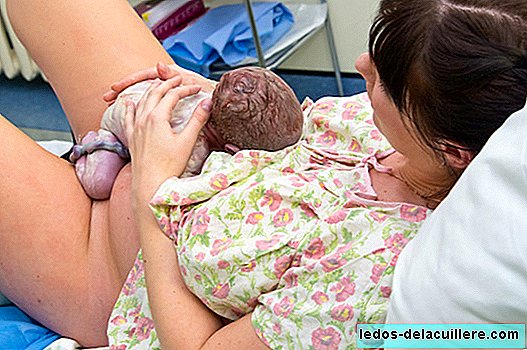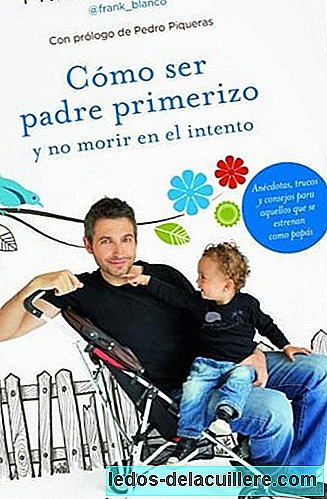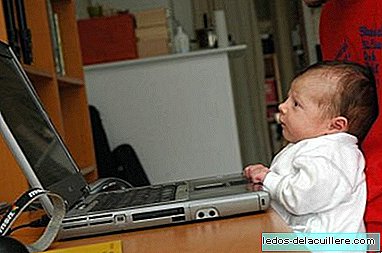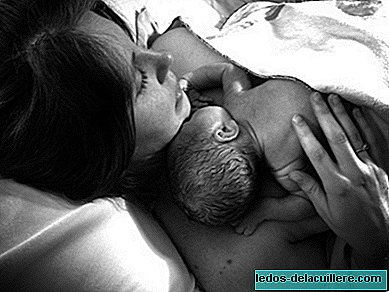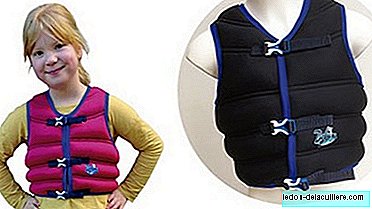
It seems from the last century, but it happens in some primary schools in Germany in the 21st century. About 200 centers in that country use vests stuffed with between 1.2 and 6 kilos of sand so that children with ADHD stay still in class and, according to its defenders, thus improve the concentration.
The German newspaper Der Tagesspiegel unleashed the controversy by publishing an article about these controversies sand vests, although many say they "work", has caused great outrage considering it a coercive measure that stigmatizes children, that prevents free movement, and most importantly, no scientific evidence on its use.
Sand therapy

The vest, which It costs between 80 and 170 euros, is a product of the Beluga Healthcare brand, and is part of its line "Sand Therapy", along with other sand-filled products indicated, as they say, for perception disorders, attention deficit, dementia, vegetative coma and autism.
"They are restless about the lack of body awareness," says Silke Turley, managing director of the Beluga Healthcare company that markets the vests. "They distribute weight and pressure throughout the muscles and stimulate the senses, which causes an increase in cognitive performance," you can read on the company's website.
They also point out that the therapy is used successfully in Germany, Austria, Switzerland, the Netherlands and England for more and more therapists, either as an independent therapy or as a therapeutic supplement.
Among its advantages they ensure that it allows you to control the symptoms of ADHD without having to resort to drugs or psychiatric treatments.
its use is completely voluntary and the only warning that is included is that It can only be used for one hour a day.
The repercussion that the controversy has had, has forced the brand to issue a clarification On its website, it ensures that their vests "achieve excellent results in children with proprioceptive perceptual disorders" and that they want to prevent them from being used as a magical solution. They point out that not all "naturally restless" children need a sand vest.
Stigmatizing and immobilizing
There are really outraged parents with its use that compare it with torture methods:
"It would be better if we avoided those methods of torture." How can you tell a child: "You are sick, and as punishment, you have to wear this vest full of sand, which is not only physical agony but will make you look like an idiot in front of the rest of the class"? I think some people have lost their sanity. ”
On the other hand, as he has declared to El País Cordula Lasner-Tietze, director of the German Child Protection Agency considers that “the so-called sand vests impose a physical restriction of the child's freedom, which in principle should not be prescribed by a pedagogue. In schools there must be an interprofessional dialogue to ensure the correct development of the child ”.
There is no evidence to recommend its use
German pediatricians have also shown their outrage over sand vests. Hermann Josef Kahl, spokesman for pediatricians in Germany, notes that "there is no medical base to ensure that this therapy favors concentration in children with hyperactivity, "and coincides with some parents who have them used "It is a way of stigmatizing, of crossing out the child as problematic".
In a statement it explains that only between 3 and 5% of hyperactive patients need treatment.
“Many of the other children who cannot concentrate, who are restless and upset in class, simply have not learned how to adapt to the demands of the classroom. In many schools, there are too many children per course, or the classrooms are too small and educators are overloaded and cannot take care of each child's individual needs. ... putting on a vest does not solve these problems”.
Although some parents say that their children work, the fundamental thing is that its efficacy is not scientifically proven for the treatment of children with ADHD. And the concern is not only that it does not produce benefits, but in addition to the stigmatization that we talked about before, if its prolonged use could be detrimental to the growth and development of children.
We have consulted with an expert
We have consulted with Manuel Antonio Fernández (@The Neuropediatra about the use of sand vests and it makes us clear to begin with:
"We must be clear that these types of products are not new nor is it the first time they appear in the European market."
And continues:
"In Spain I have not had knowledge to date that anything similar has been commercialized but in 2010 we were presented at an international neuropediatric congress that held a similar line of clothing in Berlin for children with neurodevelopmental problems.
Like those that have come to light now, from the Beluga Healthcare company, its foundation was in the sensory integration therapy.
One way or another, and even if they say on their website that there are studies they are doing and positive experiences with their use, the truth is that There is currently no scientific study that analyzes the usefulness of this type of garments or devices".
That said, remember the importance of being impartial and objective and we must not lose the north or fall into demagogy or the cheap sensationalism of criticizing everything without seriously analyzing and evaluating.
"It does not seem reasonable, from an ethical point of view (I do not know if legal), to affirm that these products improve the situation of children with ADHD if there are no studies to support it. But on the other hand, it does not seem reasonable either to demonize the use of these products as discriminatory or stigmatizing, if so, it could also be the glasses I wear, a crutch for someone with mobility problems or a wheelchair for a person who has suffered a stroke.
"The use of the product is a different matter than its usefulness.. These vests may be useful or not, that should be evaluated and measured ... but determining if their use is perceived as negative by other children, for example, is something else. "
Via | The country
In Babies and more | Is there or does not exist ADHD? The opinion of the experts, "Now what worries and is not tolerated is the restless and outgoing child": the psychologist Marino Pérez dismantles the ADHD



